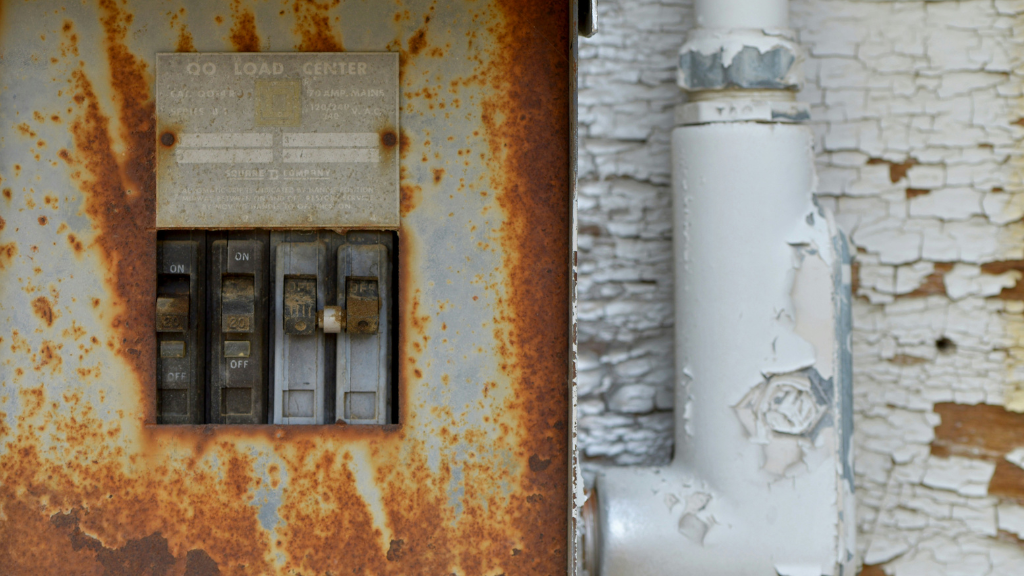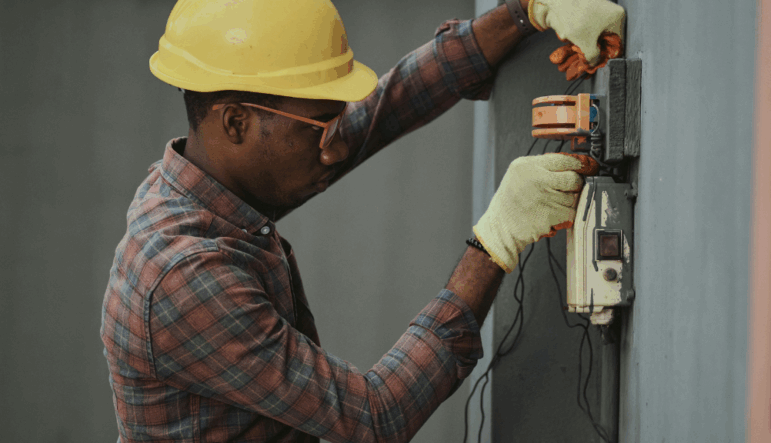When embarking on a new construction project, the role of an electrician company in Winter Haven FL is critical to ensure that electrical systems are safe, efficient, and compliant with local codes. Electricians manage every aspect of the electrical work, from the initial planning stages to the final installation, making their expertise invaluable in creating a reliable electrical infrastructure. Moreover, hiring a 24/7 electrician in Winter Haven, FL ensures that any urgent electrical needs are addressed promptly and effectively. In this blog, we will walk you through the essential steps of how electricians contribute to new construction projects, emphasizing the importance of hiring qualified professionals.
The process begins with planning the electrical layout of the building. Electricians collaborate closely with architects and builders to design a system that meets both functional and aesthetic needs. This phase includes determining the placement of outlets, switches, and lighting fixtures while considering future electrical load requirements. As mentioned in the blog What is an Electrician?, understanding the building’s design is crucial for effective planning. Electricians must also ensure that the design adheres to local and national electrical codes to prevent any potential hazards.
What It Is: Load calculation is the process of determining the total electrical load required for a home, which includes the power demands of appliances, lighting, HVAC systems, and any future additions or upgrades.
Why It Matters: Proper load calculations are essential for ensuring that the electrical system can safely handle the anticipated demand without risk of overloads or failures.
Timeframe: This process typically takes 1-2 days, depending on the size of the home and the complexity of the electrical systems being planned. A qualified electrician will assess the specifications of all electrical devices and appliances to create an accurate calculation.
Details: The load calculation involves calculating wattage for each device and then converting that into amperage to determine the required size of the service panel. It ensures that the main circuit breaker can handle peak loads during usage.
What It Is: This step involves strategically placing electrical outlets throughout the home for maximum convenience and functionality.
Why It Matters: Proper outlet placement reduces the need for extension cords and ensures that homeowners can easily access power for devices in every room.
Timeframe: Planning outlet locations generally takes 1 day, while installation can vary based on the number of outlets and home size but may take an additional 1-3 days.
Details: Electricians consider the specific needs of each room, placing outlets near work surfaces in kitchens, multiple outlets in home offices, and ensuring adequate coverage in living spaces. Specialty outlets for higher-demand devices, such as kitchen appliances or home office equipment, are also accounted for.
What It Is: This involves planning for various types of lighting throughout the home, including ambient, task, and accent lighting.
Why It Matters: A well-designed lighting plan enhances the aesthetics of the home and provides functional illumination for everyday tasks.
Timeframe: Designing a comprehensive lighting plan can take 2-3 days. This includes evaluating natural light sources and determining the best types of fixtures for each area.
Details: Electricians may recommend using layered lighting techniques, which combine different light sources to create a balanced atmosphere. For example, ambient lighting offers overall illumination, task lighting focuses on specific areas (like reading nooks), and accent lighting highlights artwork or architectural features.

What It Is: The main circuit breaker panel is the central hub that distributes electricity throughout the home.
Why It Matters: Proper sizing and placement of the panel are crucial for the efficient functioning of the electrical system and for meeting safety standards.
Timeframe: Selecting the size and location of the circuit breaker panel usually takes 1 day, while installation may take an additional day.
Details: Factors influencing the panel’s size include the total electrical load, the number of circuits needed, and any special requirements for high-demand appliances. The panel should be easily accessible for operation and maintenance.
What It Is: Choosing the appropriate wiring type is essential for ensuring safety and compliance with local electrical codes.
Why It Matters: The right wiring minimizes risks such as overheating and fire hazards while ensuring reliable operation.
Timeframe: Determining wiring types and sourcing materials typically takes 1-2 days, with installation taking 2-5 days depending on the home’s size.
Details: Common types of wiring include Romex (non-metallic sheathed cable) for interior use and conduit for areas exposed to moisture. The electrician must evaluate the home’s specific needs and local codes to choose the best materials.
What It Is: Grounding systems protect against electrical shocks and help ensure the safe operation of electrical equipment.
Why It Matters: Proper grounding prevents dangerous electrical faults from affecting appliances and increases overall safety for occupants.
Timeframe: Planning and installation of grounding systems usually take about 1 day.
Details: Electricians install grounding rods and connect them to the electrical panel and other systems to divert any stray electrical current safely into the ground.
What It Is: Incorporating smart home technology includes integrating automated systems for lighting, security, heating, and cooling.
Why It Matters: Smart home features enhance convenience and energy efficiency, allowing homeowners to control their systems remotely.
Timeframe: Planning and installing smart home systems may take 2-4 days depending on the complexity of the setup.
Details: Electricians will ensure that smart systems are compatible with existing electrical infrastructure and that they are correctly integrated for optimal performance. This includes installing smart switches, outlets, and hubs that connect to home Wi-Fi networks.
By addressing these key components, electricians play an essential role in the successful execution of electrical systems in new construction. Their expertise ensures that homes are equipped with safe, efficient, and modern electrical installations that meet the needs of today’s homeowners.
A well-structured schedule is essential for coordinating the various phases of electrical work during new construction. Here’s a typical timeline for an electrical plan when building a new home:
Throughout the installation process, electricians must continually ensure compliance with electrical safety standards. They are responsible for conducting regular inspections and testing of the systems to verify that everything operates correctly and safely. Compliance is not merely a formality; it is crucial for preventing electrical hazards. The blog How to Ground a Light Fixture emphasizes the importance of grounding and proper wiring in maintaining safety.
Several inspections occur throughout the building process to ensure electrical safety:
Engaging a professional electrician is essential for new construction projects. Their expertise ensures that all work is carried out safely and meets regulatory requirements, which is crucial for avoiding future complications. As noted in the blog How Much Does It Cost to Rewire a Home?, hiring a professional can prevent costly mistakes that may arise from improper installations.
Furthermore, having access to a 24/7 electrician in Winter Haven, FL can provide peace of mind. In the event of any electrical emergencies, these professionals can quickly address any issues that arise, ensuring the property remains safe and functional.
In summary, the role of electricians in new construction is multifaceted and essential for the safety, efficiency, and functionality of electrical systems. From planning and installation to compliance and testing, professional electricians ensure that every aspect of electrical work is handled with expertise. For your next construction project, consider enlisting the help of skilled electricians to guarantee success from start to finish. For more information or assistance, don’t hesitate to contact us. Our experienced electrician company in Winter Haven FL is ready to help with all your electrical needs.
By understanding the critical role of electricians and the importance of professional guidance, you can ensure that your new construction project is completed safely and efficiently.

